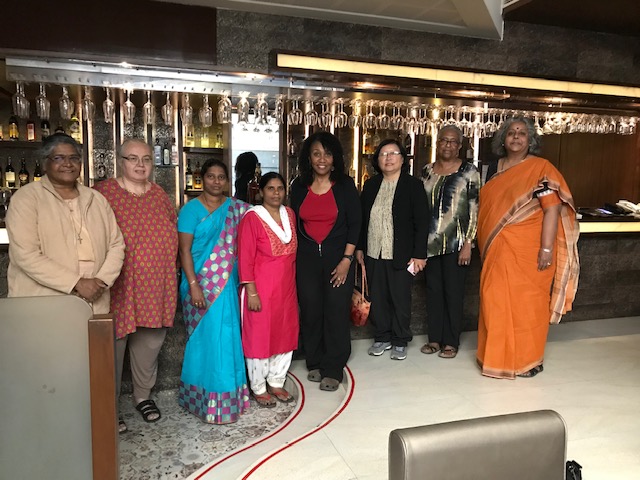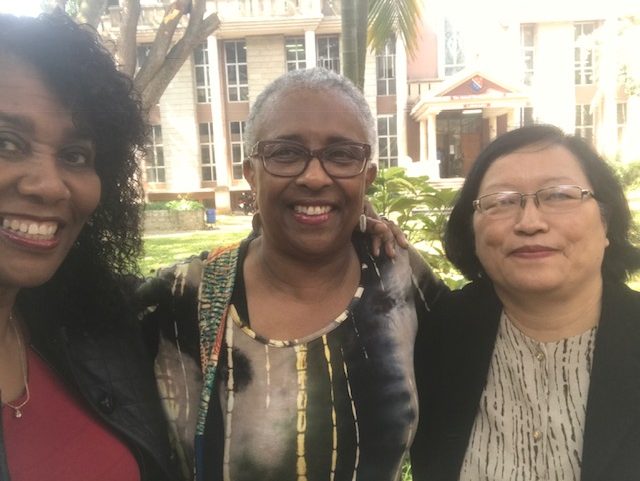India travel seminar: Same but different

BY DR. PAULA OWENS PARKER
As I listened to the presentations at the Visthar Conference and Retreat Center (on the outskirts of Bangalore), it became clear to me how much the dynamics of justice and injustice, dominance and oppression, resistance and resilience are the same in different cultural contexts.
Visthar celebrates its 30th anniversary this year. This organization’s vision is a sustainable community with gender and social equity created through transformative education and community-based advocacy in collaboration with educational institutions, community-based organizations, faith-based organizations, and social movements.
The history of the treatment of Dalits (untouchables) and especially Christian Dalits in India and African Americans in North America contain some of the same stories. Commonalities include the banning of drums, segregated water sources, separate cemeteries, menial jobs, and sexual abuse of women and men. Yet there are also differences: the Dalit communities remained largely intact through the preservation of history, culture, languages, and indigenous religions, whereas the African American communities and families were intentionally fragmented so that the original history, culture, language and religion were lost.

Linda Fox, Dr. Paula Owens, and Dr. Rini Ralte posed for a selfie while on the trip. Dr. Ralte was a student of Dr. Katie Geneva Cannon.
Dalit resistance to oppression also parallels the African American experience in many respects, including care for the spirit and soul of self and neighbor, care for the community and the children, care for the earth, and inclusion of the arts and social entrepreneurship. These are all part of the programming of Visthar.
The Katie Geneva Cannon Center for Womanist Leadership (KGCCWL) has a similar vision. The KCGCWL believes all people are endowed with gifts that contribute to the wholeness of the community. Its purpose is to empower, equip and set free black women to do the work their soul must have. The focus and purpose of Womanist Well, Womanist Wisdom, Womanist Witness, Womanist Arts and Ink, and Womanist Wares are the same…but different.
Tomorrow is our day last here. I look forward to hearing more about how they do the work their soul must have and the opportunity to exchange ideas and resources.
Dr. Paula Owens Parker is an Adjunct Assistant Professor and Interim Director of the Katie Geneva Cannon Center for Womanist Leadership.

